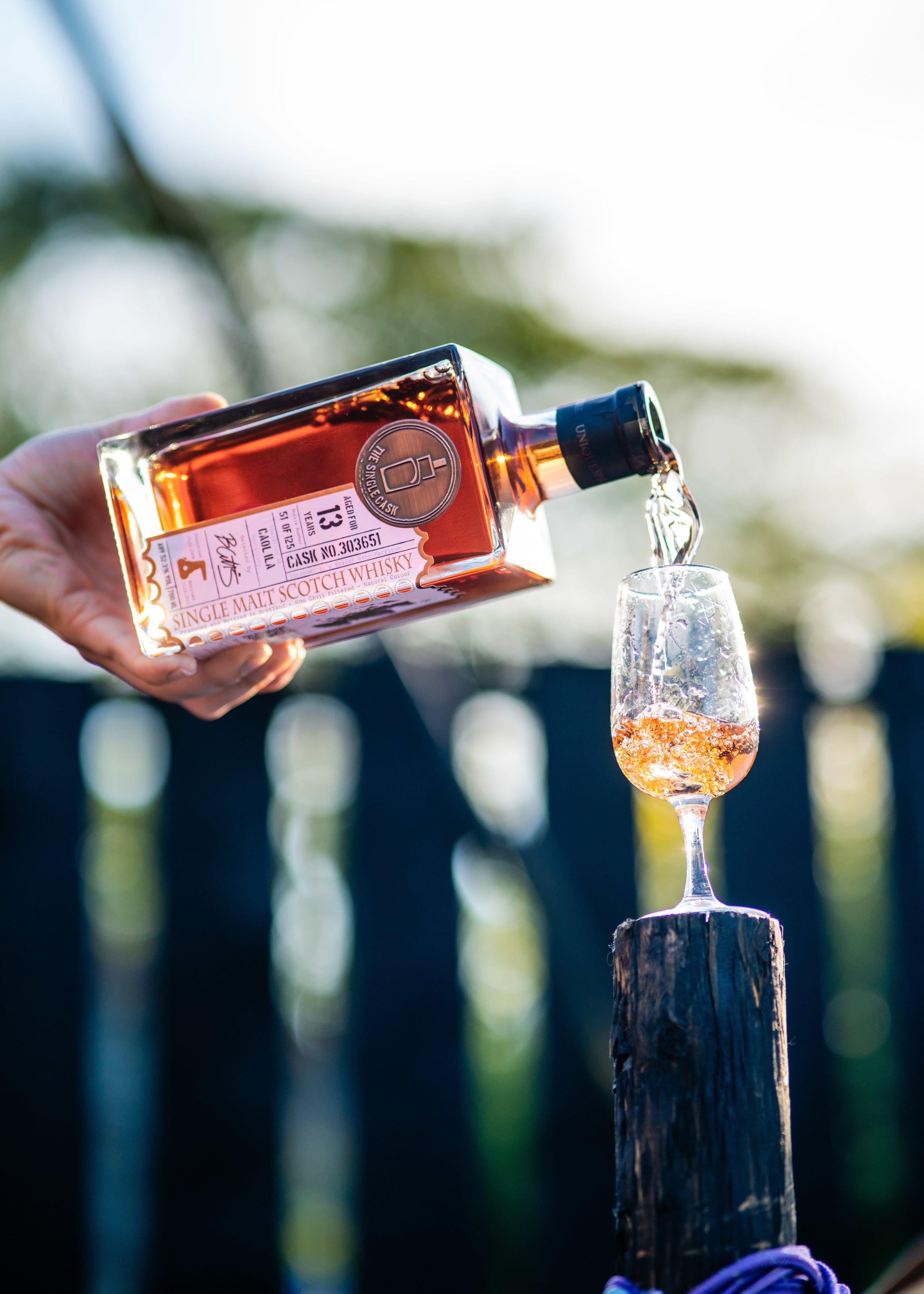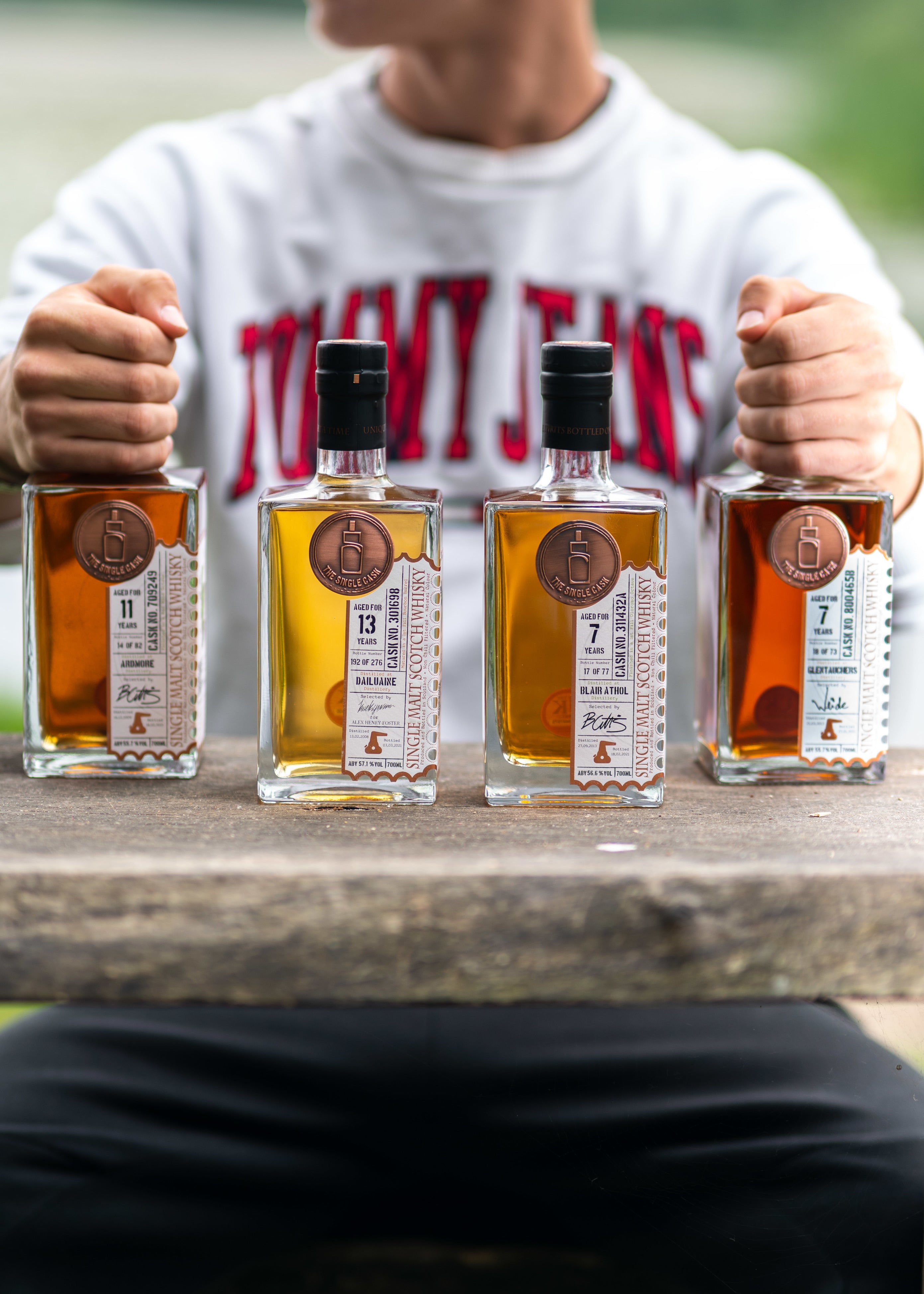
Should You Have Whisky with Ice this Summer?
Should you add ice to whisky this summer? It’s one of the most controversial questions of our age: ice in your whisky; nuclear disarmament; jam or cream on top of your scone. It is serious business.
The issue divides families and ruins a night out. Or, more specifically, has ruined many days out. Under the summer sun, even aficionados can be tempted to add ice to their whisky.
Some people always add ice to whisky; they say it gives the whisky a smoother, cleaner taste. Others believe it is an abomination. So, should we give ice lovers the cold shoulder? Or do the purists need to chill out?
You should drink whisky the way you like. If you want to sit on a beach on a summer’s day and drink scotch whisky on the rocks, do it. Mind if I pulled up a chair?
In this blog, I lay out the case for and against drinking whisky with ice. You can decide for yourself this summer.
Should you NOT have whisky with ice this summer
When you taste whisky, you want to appreciate its intricacies. How you serve whisky is important for amplifying aromas. It’s an accepted fact that adding water to whisky helps you enjoy more of its flavours. But, adding ice should do the same thing? The last time I checked, ice is frozen water. So, what’s the big deal?
The issue isn’t the water. It’s the temperature. Think back to science classes. When you warm liquids up, the molecules move faster. When you cool them down, the molecules move slower. Cooling down the whisky alters the carefully balanced flavours. Your tongue can’t pick up as much.
Have you ever had a warm Coke? It tastes a lot different than it did when it was cold. When you drink warm Coke, you notice different flavours than you did when it was crisp and refreshing. Warm Coke is gross because you taste too much of it. Cold whisky isn’t good because you taste too little of it.
So, there you go. You should not have whisky with ice this summer.
Should you HAVE whisky with ice this summer
Adding ice to whisky dulls the flavours. Case closed. Right?
Not quite.
There is a difference between adding one or two ice cubes and filling the glass with ice. If you add a lot of ice, it melts slowly and suppresses the flavours by chilling the whisky too much. Adding one or two ice cubes will cool the whisky and, when the ice melts, helps release flavours and aromas. So, adding one or two ice cubes can be like adding a bit of water. And you can still pick up some of the whisky’s flavours without dulling them too much.
In the summer, you want something cool and refreshing. Adding ice to your whisky does that. If you’re not trying to taste all the nuances of a whisky, and you want to sit in the sun and enjoy a drink, then why not add ice? On the rocks, you lose what makes a great whisky a great whisky. But sometimes you don’t need it to be a great whisky. Sometimes, you want to kick back and get some sun.
So, if you want to, you should have whisky with ice this summer.
Getting the most out of your whisky
Adding water is the best way to appreciate the nuances and flavours of a whisky. Our whiskies have a high alcohol content so using water is a great way to enjoy them; for example, our Royal Brackla is 60.9% alcohol.
You might also enjoy The Final Cut, a whisky tasting set that helps you create the perfect dram at your ideal strength; each set comes with 100ml of cask strength whisky, 100ml of spring water local to where the whisky was made, a Glencairn whisky glass, and a glass pipette to measure the water you add, drop by drop.
But ultimately how you enjoy your whisky is up to you. If you want to enjoy a whisky on the rocks this summer, do it. You should enjoy your whisky. If you enjoy the experience, then nothing should stop you. We’d love to see pictures of you enjoying your whisky this summer, so please tag us on Instagram, Facebook or Twitter.
For more insight into whether you should ever put ice into your single malt scotch, read Jonathan Wells’ article in Gentleman’s Journal.



Leave a comment
This site is protected by hCaptcha and the hCaptcha Privacy Policy and Terms of Service apply.